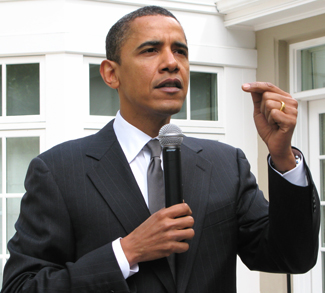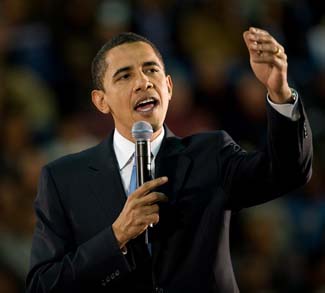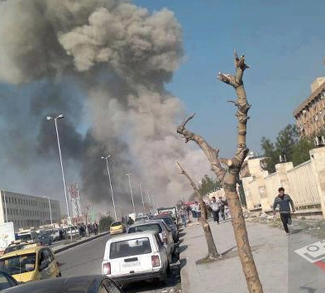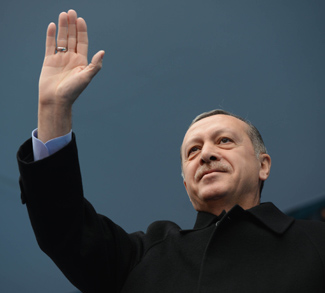Shifting Priorities: Syria and Iraq
United States (US) President Barack Obama and his administration have yet to realize that a more cynical perspective is required to adequately address the war in Syria, which is nearing its five-year mark. The US needs to focus its attention on Iraq first if it expects to see any positive outcome in Syria.
Syria leader Bashar al-Assad, not simply from a “justice” or “do the right thing” point of view, can’t be left in power. Though many analysts have opined that Assad is the key to a future or a lasting peace in Syria, there has to be an incentive for rebel groups to lay down their arms. They can’t do so as long as Assad is at the head of government in Syria. There are now roughly 5 million Syrians outside of Syria (nearly 8 million are internally displaced). They won’t return until Assad has left. If they do, they’ll face persecution, torture, and death. Those fighting against Assad won’t lay down their arms until they have a reason to do so.
The present balance that exists with the Islamic State (IS) operating in the region poses a significant challenge, and this is a balance that Russia will likely strive to maintain. IS provides Assad with the necessary weight to maintain the balance between the West and his wide-ranging opposition. Assad, who currently controls about 25% of Syrian territory (IS about 50%), has welcomed the arrival of Russian forces. If he were to be forced out of Damascus, he’ll find refuge in the stronghold near Latakia, where Russian military buildup is taking place.
Now that Russia has arrived and brought a sizeable military combat force with it, many are still puzzled as to Russia’s true intentions – who Moscow intends to support and who’ll be bombed. When the bombing begins it will likely be a lot stronger and much less discriminate than that of the US and its coalition.
Russia’s Short-Term Presence, Deadly Aggression
Moscow has sent a sizeable force which includes the most advanced military technology, surveillance drones, a dozen T-90 tanks, over a dozen howitzers, air-defense systems, several dozen armored personnel carriers, and the necessary materials to support several thousand personnel, including marines.
Who’s going to be hit? The Russians will probably maintain their focus on IS and Syrian rebel groups. But Russia can’t be expected to remain in Syria over a long period of time although some types of aircraft and other military equipment could be stationed in Syria indefinitely. Moscow needs to flex its muscles every now and then. In Georgia this made sense. In Ukraine it also made sense. Russians understand, even if they don’t completely agree with or support operations, why Russia is in Ukraine. But, Russia in Syria? Russian’s don’t’ understand the presence there.
Russia has a gross domestic product (GDP) close to Italy’s. Not surprisingly, a country the size of Russia takes a lot more money to maintain and run. Even Moscow must be aware of how expensive its Syrian operations are. It’s also most likely aware that it cannot afford a sustained military campaign in Syria and for no solid reason other than it needs to show the world that it’s military is still strong.
Since Russia is likely to make its presence felt, it will likely do so for a limited time and then pull out as fast as it arrived. During this period the US ought to integrate a degree of cynicism into its strategic thinking about Syria, Iraq, and the broader region over the long term. Russia’s intervention gives the US and its allies a bit of breathing space so that greater attention can be put toward Iraq: a modern day equivalent of the Allies’ “Germany First” policy during World War II.
An Unsavory Turkey
Iraq’s borders need to be closed to unwanted or unreliable foreign involvements. Turkish President Recep Tayyip Erdogan has been playing a fowl game with his North Atlantic Treaty Organization (NATO) brethren and other governments committed to bringing about lasting peace in Syria and Iraq. Turkish fighter jets have taken part in nearly 300 airstrikes against the Kurdistan Worker’s Party (PKK). Ankara’s violent treatment of the Kurds over previous decades won’t wane, especially in the face of hopes of the establishment of a Kurdish state in northern Syria. Iraq now appears less prone to the fundamental problems of the war in Syria.
Back to Iraq, For Real This Time
If the US pivots to Iraq and centers its attention the conflict in the northern half of the country, convincing European allies would be no easy task. For the European states, stepping outside of Syria would be stepping into a political unknown. Syria insulates European states in the Western coalition from heavy criticism about using military power owing to Assad’s tyranny, which offers justification for long overdue action, even in the face of some criticism.
Syria is a sphere containing a mix of militant groups, rebels, non-state actors (NSAs), and external supporters. Iraq is somewhat sheltered from this confusion, with Iran to the east and the strong Kurds to the north, concentrating military force in Iraq presents no political dilemmas. US military commanders, Republican rivals, and political officials in Iraq would be satisfied to see Obama return to finish what the US started well over a decade ago.
In 2011, Iraqi officials requested that US forces stay in Iraq and that withdrawal would have even greater destabilizing effects as many militants had not been neutralized nor had numerous opponents been invited or brought into the political process. General Leon Panetta and General Lloyd Austin openly stated that they would’ve pushed the Iraqi’s to ask for further help, but fully recognizing that the job was far from complete, there was an explicit need for the US to commit to this task that was only partially completed.
The end of a lengthy bilateral security agreement signaled a giant leap for a state that endured years of destruction. Half a decade after US military pleas to keep US forces in Iraq were ignored by Obama and no security deal was reached with Baghdad, the US has an opportunity to redouble efforts and dislodge IS from the eastern part of the current theater of operations. Washington’s failure to see the Kurds as a strong force for good in the region, if only the Kurds were to receive the necessary funding (even half of what the Syrian rebels have received), training, and military equipment. Obama’s $500 million USD investment in rebel training was a strategic belly flop.
The majority of IS-controlled oilfields are in Iraq and the second largest city under the jihadists’ control. IS operations cut clear across Syria and Iraq but the de facto capital of the caliphate is located in Al-Raqqah (Syria) while much of the economic body of the caliphate lies in Iraq. A supergiant oilfield is located near Kirkuk. Sever the head and the funding sources of the group would be disrupted (before the jihadist group with its vast support network really goes global), including its oil exports from the north and west of Iraq. Since IS controls such a large area, reducing its economic sources by such a degree would have major repercussions for its war chest and ability to sustain an entire “state.”
Maintaining a Presence
Shia militants in Iraq also learned a great deal about combat and killing during the Iraq war. They’re ready to provide Iraq with a security force that it desperately needs but while the Shia militias are doing a good job at pushing back IS forces, fears of Shia power in Iraq’s Sunni heartland cannot be ignored. Zach Beauchamp raised the question about Shia militias being Iraq’s next big threat. Shia “are bringing short-term success against ISIS, and setting up long-term problems that could be disastrous.”
Obama erred in his assessment several years ago when US troops left the country. In December 2011, the president said that, “[w]e’re leaving behind a sovereign, stable, and self-reliant Iraq, with a representative government that was elected by its people.” Joint combat forces were critical to eliminating Saddam Hussein during the Iraq War. They were also responsible for keeping securing in the country after the dictator had been toppled. Without this critical combination, however, Iraqi security deteriorated, eventually making way for the IS’ invasion of northern and western Iraq.
Returning to Iraq requires a commitment of both land and air combat forces to support Iraqi Security Forces, and a strong US political presence is precisely what Iraq needs above and beyond the military commitment to nourish Iraq’s weak command structure and bring Shiites, Sunnis, and Kurds closer together. In Syria, Assad’s ring of friends will continue to provide him with strong assurance. Russia and Iran have major interests in the region. And with both comes immense financial support.
Tehran showed its support to Assad by extending a line of credit of $1 billion USD. Efforts of both Russian and Iran are veiled, with Moscow and Tehran masquerading as anti-IS players, and the West (including its non-Western partners) will find it particularly tricky to move against the position of both in Syria – where their power is far less tangible than in Iraq.
The US started in Iraq then turned to Syria. It must now return to Iraq to finish what it already started. As much as Obama wanted the “bad” war in Iraq to be over, it only really began after the US’ departure.
The opinions, beliefs, and viewpoints expressed by the authors are theirs alone and don’t reflect any official position of Geopoliticalmonitor.com.




